ABOUT
Amrutha Varshini Akshara Swachanda Seva Society is a non- profit, non-governmental, non- commercial voluntary organisation working for thedevelopment of the Society since last two decades for the betterment of thesociety in the fields of education, culture, health, focusing on children’s, youth’s and women welfare. specially focus on child and women development. It isestablished in the year 2010, started old age home with providing shelter, food and other necessary things, for the old age people. Now this organisation is managed by a team ofcommitted professionals, interested in the welfare of the community.
OUR VISION
To give necessary needs to old aged elderly people without shelter/ care takers, to help them lead a better living. To take up welfare activities which helps society in some or the other way to the people including but not limited to activities like medical camps, tailor training, computer couching, polio camps, establishment of small-scale industries, educational drives, youth empowerment programs.
OUR MISSION
By the end of year 2025, to establish youth associations on a grass root level to know and solve issues at village level for the betterment of society in all possible ways.
BOARD MEMBERS

Mr. K Shyam Prasad
Founder
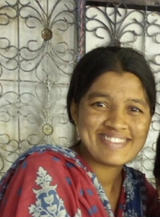
M/s Mateti Shailaja
President

Dr. A.Vijaykumar
None
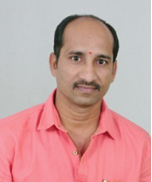
Moru Shankar Murthy
None
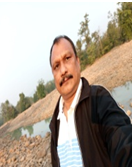
Dr.Kashetty Srinivas
None
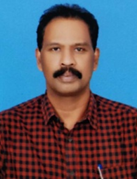
Dr.K Shanthi Kiran
None
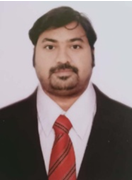
Keraveni Chiranjeevi
None
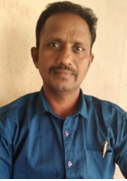
Ammula Thirupathi
None
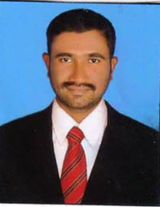
Yerra Nagaraju
None
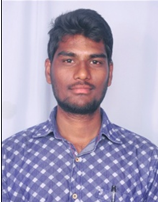
Karthik Saduvelli
None
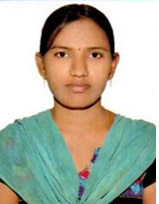
Samala Sandhyarani
None
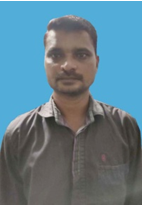
Vemula Srinivas
None
ENVIRONMENTAL IMPORTANCE PROGRAM.
Environment plays an important role in the healthy living of human
beings. it matters because it is the only home that humans have, and it
provides air, food and other needs. Humanity's entire life support system
depends on the well -being of all the environment factors.
Importance of Environmental education:
Environmental education is a process that allows individuals to explore environmental issues, engage in problem solving, and take action to improve the environment. As a result, individuals develop a deeper understanding of environmental issues and have the skills to make informed and responsible decisions. It encourages students to research, investigate how and why things happen, and make their own decisions about complex environmental issues.
Program's to be undertaken to achieve this are:
· Program on reduce waste, reuse resources, and recycle materials.
·Organize tree planting days and tell them why trees are important to the environment.
· Bring Awareness in society in various aspects of saving or preserving the environment.
¨Awareness and sensitivity to the environment and environmental challenges
¨Knowledge and understanding of the environment and environmental challenges.
¨Attitudes of concern for the environment and motivation to improve or maintain environmental quality
¨Skills to identify and help resolve environmental challenges
¨Participation in activities that lead to the resolution of environmental challenges.
·We would make them practice at home doing small tasks like picking up their trash and throwing the garbage, or teaching them to turn off the faucet when they’re brushing their teeth or washing their hands with soap and not let water run down, or shut off the lights when they’re done using them
· As pointed out by a UN report, without ‘unprecedented changes’ in our actions and behavior, our planet will suffer drastically from global warming in just 12 years. Greenhouses gases are the main cause of climate change, trapping in the sun’s heat and warming the surface of the earth. We will make people to know about disadvantages of Climate Change and how to minimize the impact.
· Effectively participating and encouraging to have house gardens, street gardens with medicinal plants.
Medicinal plants are generally known and popular for several health benefits such as decreasing of blood pressure, prevention of cardiovascular diseases, or reducing the risk of cancer also due to their antioxidant activity. It is a healthy supplement. we would like to encourage use of this fresh home grown eatables.
UNDERGROUND AND SURFACE WATER IMPORTANCE AWARENESS PROGRAM
Groundwater, which is in aquifers below the surface of the Earth, is one of the Nation's most important natural resources. It often takes more work and costs more to access groundwater as opposed to surface water, but where there is little water on the land surface, groundwater can supply the water needs of people.<o:p></o:p>
Surface water is found in lakes, rivers and streams and is drawn into the public water supply by an intake. However, groundwater commonly contains less contamination than surface water because the rock tends to act as a filter to remove some contaminants.
Surface water is found in lakes, rivers and streams and is drawn into the public water supply by an intake. However, groundwater commonly contains less contamination than surface water because the rock tends to act as a filter to remove some contaminants.
Program's to be undertaken to achieve this are:
·Encourage to Construct percolation tanks and to construct small tanks in the fields which improves the ground water and recharges the wells and bore wells around the tanks.
·Bring awareness among people to Use and dispose of harmful materials properly which includes:
Ø Motor oil
Ø Pesticides
Ø Leftover paints or paint cans
Ø Mothballs
Ø Flea collars
Ø Household cleaners
Ø Several medicines
·Awareness to stop overuse pesticides or
fertilizers and encourage to use organic substitutes which will in turn save
water and other natural resources.
· Discuss water quality threats, including the dangers of polluted runoff and habitat loss.
·Awareness to protect the water cycle, which effects human, animals, plants and land.
·Encourage building Sink pits(Inkudu guntha) to stop flooding and to refuel the underground water.
·Encourage to Spread the word and be a water advocate.
Ø Work with your local elected officials to ensure that pesticides, antibacterial, and other toxic chemicals are not used at schools, local parks
·Awareness on national policies that conserve water and stop pollution.
Animal welfare refers to the state of the animal, the treatment that an animal receives is covered by other terms such as animal care, animal husbandry, and humane treatment.
Program's to be undertaken to achieve this are:
·Awareness on protecting an animal, which also means providing for its physical and mental needs.
·Awareness about animal transport. Animals should be cared for in ways that minimize fear, pain, stress, and suffering.
·Procedures related to animal housing, management, care, and use should be continuously evaluated, and when indicated, refined or replaced.
·Bring change in thought process of seeing and treating animals in Youth.
·To help save animals in time of disaster. Reduce suffering and helping communities to recover and rebuild.
· Spread awareness about veterinary Hospitals and their advantages
·Awareness to stop wildlife trade and stop hunting wild animals.
·Awareness about how to be a responsible pet owner. Know about and fulfil the needs of your pet. Don’t just concern yourself with basic needs – give your pet positive experiences that really enhance its well-being.
·Awareness about what laws are in place to stop animal exploitation
·Awareness on how to Report animal cruelty, abuse or neglect. If you witness any form of animal cruelty, report it to the police or other authorities. Act immediately to prevent further cruelty.
· Help people to understand that they can intervene in situations where animals are being neglected or even tormented. Animals have a right to live without fear or pain, and we have a responsibility to step in if their rights aren’t respected.
WOMEN AND CHILD ABUSE ERADICATION PROGRAM
Violence against women and girls is rooted in gender-based discrimination, social norms that accept violence, and gender stereotypes that continue cycles of violence. To date, efforts to eliminate violence against women and girls have mainly focused on responding to and providing services for survivors of violence. However, prevention—addressing the structural causes, as well as the risk and protective factors, associated with violence—is pivotal to eliminating violence against women and girls completely.
Prevention is the only way to stop violence before it even occurs. It requires political commitment, implementing laws that promote gender equality, investing in women’s organizations, and addressing the multiple forms of discrimination women face daily. The evidence about prevention has evolved considerably over the past decade, including as a result of various initiatives supported by UN Women.
Program's to be undertaken to achieve this are:
Child maltreatment by parents and caregivers can be prevented by:
·reducing unintended pregnancies.
·reducing harmful levels of alcohol and illicit drug use during pregnancy.
·reducing harmful levels of alcohol and illicit drug use by new parents.
·improving access to high quality pre- and post-natal services.
·providing home visitation services by professional nurses and social workers to families where children are at high-risk of maltreatment.
·providing training for parents on child development, non-violent discipline and problem-solving skills.
Violence involving children in community settings can be prevented through:
·pre-school enrichment program's to give young children an educational head start.
·life skills training.
·assisting high-risk adolescents to complete schooling.
·reducing alcohol availability through the enactment and enforcement of liquor licensing laws, taxation and pricing.
Awareness and celebrating World Day for the Prevention of Child Abuse, November 19
ELECTRICITY USAGE PROGRAM
Electricity is both a basic part of nature and one of the most widely used forms of energy. The electricity that we use is a secondary energy source because it is produced by converting primary sources of energy such as coal, natural gas, nuclear energy, solar energy, and wind energy, into electrical power.
Electricity is basically a no-loss energy. It converts energy into useful power without losses and without pollution. Smart electrification will allow us to make better use of energy, reduce emissions and ultimately help mitigate climate change.
Electricity is central to the ability of almost all modern societies to function. Hospitals, air traffic control systems, streetlights, modern sewage systems, most forms of communication, and the U.S. financial services industry are all dependent upon electricity
Program's to be undertaken to achieve this are:
·Awareness on renewable and non-renewable source of energy
·Awareness on exploitation of energy
· Awareness on use and maintenance of renewable energy
·Awareness on storage and transportation of Energy
· Awareness on safety practices
PLASTIC WASTE DRY AND SOLID MANAGEMENT PROGRAM
Reduces production costs an incredible benefit of waste management is it can cut overall production costs in the long run. Recycling helps to conserve natural resources such as glass, plastic, paper and oil. Reusing these materials will place less strain on our natural resources and lower the cost of production
Waste is produced by human activity, for example, the extraction and processing of raw materials. Waste management is intended to reduce adverse effects of waste on human health, the environment or aesthetics.
Types of Waste:
Biodegradable waste
These are the wastes that come from our kitchen and it includes food remains, garden waste, etc. Biodegradable waste is also known as moist waste. This can be composted to obtain manure. Biodegradable wastes decompose themselves over a period depending on the material.
Non-biodegradable waste
These are the wastes which include old newspapers, broken glass pieces, plastics, etc. Non-biodegradable waste is known as dry waste. Dry wastes can be recycled and can be reused. Non-biodegradable wastes do not decompose by themselves and hence are major pollutants.
Securing ecologically sustainable development while promoting justifiable economic and social development
· To ensure the protection of the environment through effective waste management measures
· To protect the health and wellbeing of people by providing education on waste management.
Program's to be undertaken to achieve this are:
· Awareness on segregation different waste at source
· Awareness on energy generation from waste
· Awareness on organic uses of waste
· Awareness on advantages of recycling
MEDICAL CAMPS
Medical camps are conducted by health professionals to carry out a limited health intervention amongst the underprivileged community. The poor attend these camps to get free check-up and treatment. Getting the appropriate kind of health check-up is vital for every human being and while considering it, some important factors like age, lifestyle, family background, and risks are considered.
Health examinations and tests at the early stages of the illness can help to cure it faster and save a life before it can cause any damage. One can live longer and healthier only when the individual gets the right kind of health check-up, screening, and treatments. Even the most basic check-ups can identify underlying illnesses.
A Free medical Camp can be considered as a life-saving program which aims to provide free medical and surgical services to poor communities living in rural or urban areas by a mobile team with varieties of medical specialized services. Some NGOs, Charitable Medical Trusts, and medical professionals are driven by strong ethics of medicine who believe that it is the moral responsibility and obligation to treat each patient regardless of their incomes, race or social status. The main objective of a medical camp is to provide initial care to people in life-threatening conditions which reflect the unique strengths and goals of medical ethics.
Program's to be undertaken to achieve this are:
· Provide free and high-quality medical services for needy.
· Working as an emergency team in disasters.
· Raise health awareness among the community and teach them to deal with communicable and noncommunicable deceases
· Register rare and severe cases and refer them to specialized centres.
· Evaluate the living conditions and determine the obstacles and challenges to work on solving their problems.
· Refer medical cases towards surgeries if required.
· Establishing Medical camps in remote areas for general check-up and medicine
· Awareness on mosquito related deceases
· Awareness on sexually transmitted deceases STDs
· Awareness on disadvantages of self-medication
· Awareness on Organ Donations and its uses.
SMALL SCALE INDUSTRIES ESTABLISHMENT PROGRAM
Small scale industries are those industries in which the manufacturing, production and rendering of services are done on a small or micro scale. These industries make a one-time investment in machinery, plants, and industries, but it does not exceed Rs 1 Crore.<o:p></o:p>
The rapid development of capital goods industries promotes the growth of agriculture, transport and communication. It also enables the country to produce a variety of consumer goods in large quantities and at low costs. It also eliminates our dependence on other countries for the supply of essential goods.
Small scale industries are important because it helps in increasing employment and economic development of India. It improves the growth of the country by increasing urban and rural growth. Role of Small and medium scale enterprises are to help the government in increasing infrastructures and manufacturing industries, reducing issues like pollution, slums, poverty, and many development acts. Small scale manufacturing industries and cottage industries play a very important role in the economic development of India. If any amount of capital is invested in small scale industries, it will help in reducing unemployment in India and increasing self-employment. The industry is a sector in which the production of goods is a segment of the economy. Let us learn more about the importance of Small-scale industries and how SSI helps in developing the country.
SMALL SCALE INDUSTRIES IDEAS LIST:
Aluminum door and window manufacturing
Ceramic glazed tiles production
Making of paper bags
Manufacture of furniture
LED Light manufacturing
Leather product manufacturing
Talcum Powder production
Textile printing
Manufacture of energy drink
Garment manufacturing unit
Automobile parts manufacturing
Manufacturing of fertilizers
Water filters manufacturing
Mineral water plant
Manufacturing of carpet
Bio-fuel production
Manufacturing of kitchen utensils and cutleries
Coconut oil manufacturing
Manufacturing of concrete blocks and tiles
Dal mill
Organic Detergent Manufacturing
Manufacturing of small types of equipment used in farming
Handmade paper making
Grape-wine making
Exercise book manufacturing
Cashew processing
Crates and carton manufacturing
Bread production
Manufacture of natural beauty products
Fitness equipment manufacturing
Groundnut Oil processing unit
Production of organic produce
Poultry farm
Fisher
Milk Centre
Wholesale of Fertilizers
Drinking water supply
Retail shops
Flour mill
Threshing machine
Oil mill
Mushroom farming
Organic farm
Plastic recycling unit
Paper plates/cups manufacturing unit
NOTE: The above-mentioned examples are implemented after the detailed study of market and interest in the community, the list is not only limited to the above said examples.
Program's to be undertaken to achieve this are:
· Awareness on Advantages of establishing business units
· Awareness on funding and sales
· Awareness on various government schemes
· Help communities establish the above discussed ideas for small scale industries
SELF-HYGIENE AND SURROUNDINGS CLEANLINESS AWARENESS PROGRAM
Good personal hygiene is very important today
for both health and social reasons. Keeping your hands and body clean is vital
in stopping the development and spread of illness and infection. This simple
habit doesn't just benefit your health – it can help protect those around you
too.
Personal hygiene is
generally defined as cleanliness of the body and proper maintenance of personal
appearance. Practicing good body hygiene also helps us to feel good about our
self, which is also important for our mental health
Program's to be undertaken to achieve this are:
Awareness on:
§
Using the toilet
§
Always wash hands with soap and clean water before touching or handling
food.
§
Rinse and rub soap for at least 1-2 minutes.
§
It is essential to wash hands before eating after eating if they have
been to the toilet or were playing outside.
§
Clean hands thoroughly so that there are no traces of soap left. Use
fresh water to clear the soap completely.
§
Wash your hands frequently when helping in the kitchen, as vegetables,
raw meat, and others may be carrying bacteria before they are cooked.
§
Wash your hands after eating food.
§
Always use a clean cloth to wipe your hands and mouth of todlers.
§
If your children often help you in the kitchen, then teach them the
basics of storing foods and hygienic cooking.
§
Mosquito repellent methods
§
Bathing habits
§
Exercise
EDUCATION IMPORTANCE PROGRAM
Having education in an area helps people
think, feel, and behave in a way that contributes to their success, and
improves not only their personal satisfaction but also their community. In
addition, education develops human personality, thoughts, dealing with others
and prepares people for life experiences.
In India, education in
the rural segments is not only important to eradicate poverty and illiteracy,
but also for a variety of other social, economic as well as cultural and
political reasons. The role of education, both urban and rural, is huge in
growth of the country's economy.
Program's to be undertaken to achieve this are:
·
Bring awareness in youth and rural population about the importance of education.
·
Cultivating habit of teaching others who are in need
·
Encouraging to enroll in Education
·
Awareness on importance of Education in growth
·
Conducting Bridge courses for applicable
·
Certification courses for revenue to needy
ORGANIC FARMING PROGRAMM
Food quality and safety are two vital factors that have attained constant attention in common people. Growing environmental awareness and several food hazards (e.g. dioxins, bovine spongiform encephalopathy, and bacterial contamination) have substantially decreased the consumer’s trust towards food quality in the last decades.
Organic Farming Process
Organic farming and food processing practices are wide-ranging and necessitate the development of socially, ecologically, and economically sustainable food production system.
The main principles and practices of organic food production are to inspire and enhance biological cycles in the farming system, keep and enhance deep-rooted soil fertility, reduce all types of pollution, evade the application of pesticides and synthetic fertilizers, conserve genetic diversity in food, consider the vast socio-ecological impact of food production, and produce high-quality food in sufficient quantity
Program's to be undertaken to achieve this are:
· Awareness on Improvement and maintenance of the natural landscape and agro-ecosystem.
·Information on avoidance of overexploitation and pollution of natural resources.
· Awareness on Minimization of the consumption of non-renewable energy resources.
· Maintenance and improve soil health by stimulating activity or soil organic manures and avoid harming them with pesticides.
·Optimum economic returns, with a safe, secure, and healthy working environment.
· Acknowledgement of the virtues of indigenous know-how and traditional farming system.
TRAFFIC RULES ROAD SAFETY DIRECTION PROGRAM
Road safety is of prime importance as road accidents are among the biggest causes of deaths in the country. With the number of vehicles on our roads increasing with every passing hour, it’s of vital importance for everyone to have traffic awareness and understand and respect all the road safety rules in India.
Few Rules to always keep in mind are:
Never Drink & Drive.
Always Wear Seat Belt.
Keep a Safe Distance from the vehicle ahead.
Always Avoid Distractions.
Never Break Red Signal.
Always Drive Within Speed Limit.
Avoid the Drowsiness While Driving.
Watch Out for Drivers on the Road.
Essential Documents:
A driver should possess the following documents while driving a vehicle: –
a. Driving license
b. Registration certificate of the vehicle
c. Taxation certificate
d. Insurance certificate
e. Fitness certificate
f. Permit
Program's to be undertaken to achieve this are:
·
Awareness on Traffic rules and signs
·
Awareness on importance of following traffic
rules
·
Awareness on procedure to get licence and
other documents necessary
·
Awareness on “family comes first than speed”
DONATE NOW!
Make a generous donation to help us reach more beneficiaries.
Account Number: 129010100066085
Bank: ANDHRABANK
Branch: Bhupalpally
IFSC Code: ANDB0001290
All donations are eligible for tax savings under 80G.
VOLUNTEER WITH US

ADDRESS
CONTACT
Karalmarks Colony, Bhupalpally, Warangal, Telangana- 506002
PHONE
7075537011
bhplamruthavarshini@gmail.com